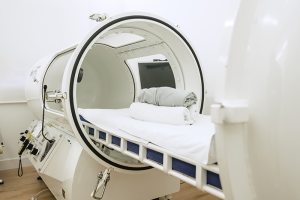‘Power skills’ needed to succeed in today’s workplace
Editor’s note: “Power Skills” is a 12-part series with one article posted monthly exploring the nontechnical tools today’s health care facilities professionals need to succeed and excel in their career goals. See more articles from the series here.
A screw has a purpose: securing items together. A screwdriver, likewise, has its own purpose: turning the screw. Those functions, however, are inert until a hand picks up the screwdriver to turn the screw, connecting those items.
Technical skills are fundamental to success in health care facilities management. Systems that maintain any environment where people come together to deliver health care are complex. Mastery of skills required to maintain those complex systems is an integral component of the care experience.
No single person maintains these systems. Successful technicians flourish on teams managed by leaders who help set direction and represent them in interactions with the other teams that constitute that facility’s workforce. Working on or leading teams requires additional skills beyond the technical. It requires additional tools in the toolbox.
Historically, these additional tools comprised of human-centered abilities have been called soft skills. In an article published by Thomson Reuters, Natalie Runyon, director, ESG content and advisory services at Thomson Reuters Institute, rebranded these as “power skills” because they “aren’t just nice to have, nor are they less important to succeed in the workplace — they are essential skills for an ever-changing workplace”
Over the course of 2023, I will highlight 10 power skills needed to excel in today’s work environment: Communication, social and emotional intelligence, critical thinking, problem-solving, teamwork, leadership, professional attitude, work ethic, career management and intercultural fluency. We'll work to understand these skills, highlight resources from the American Society for Health Care Engineering community on how to gain excellence in them, and connect them with the technical skills in our toolbox to enable success.
Adam Bazer, MPD, is director of education at the American Society for Health Care Engineering.





